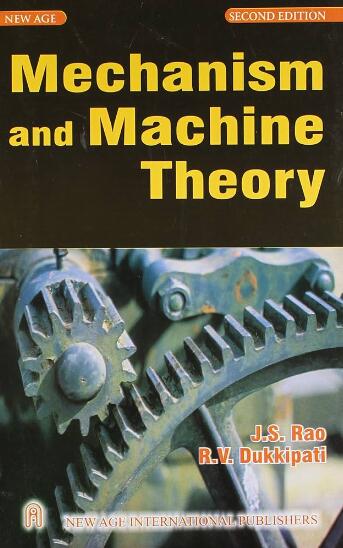An integrated design method for piezo-actuated compliant mechanisms considering configurations, flexure elements, and actuators
IF 4.5
1区 工程技术
Q1 ENGINEERING, MECHANICAL
引用次数: 0
Abstract
With the wide application of piezo-actuated compliant mechanisms (PACM) in the nano-positioning domain, it has been a crucial and challenging issue to design optimal PACMs with various design objectives and constraints. In this paper, an integrated design method for the planar PACMs is developed to realize their comprehensive performance optimization, considering the key factors, including mechanical configurations, flexure elements, and piezoelectric actuators (PEA). This method can effectively consider the complicated coupled dynamics between compliant mechanisms and actuators and further accurately predict the actual performance of the PACMs. Utilizing the Pareto optimality idea, the method can efficiently find the performance limits of various alternative configurations and offer the most appropriate design solutions for practical engineering applications. Two nano-positioning stages used for atomic force microscope (AFM) imaging are designed from alternative combinations of four configurations, five types of actuators, and twelve types of flexure hinges to illustrate the detailed design procedures. The results of the finite element analysis (FEA) and experiments finally verify the performance of the designed stages and validate the effectiveness of the proposed design method.
考虑构型、挠性元件和致动器的压电致动顺变机构综合设计方法
随着压电致动顺从机构 (PACM) 在纳米定位领域的广泛应用,如何在各种设计目标和约束条件下设计出最佳的 PACM 一直是一个关键且具有挑战性的问题。本文开发了一种平面 PACM 的集成设计方法,以实现其综合性能优化,其中考虑了机械配置、挠性元件和压电致动器 (PEA) 等关键因素。该方法可有效考虑顺从机构与致动器之间复杂的耦合动力学,并进一步准确预测 PACM 的实际性能。利用帕累托最优思想,该方法可以有效地找到各种备选配置的性能极限,并为实际工程应用提供最合适的设计方案。为了说明详细的设计步骤,我们设计了用于原子力显微镜(AFM)成像的两个纳米定位平台,由四种配置、五种致动器和十二种挠性铰链的备选组合而成。有限元分析(FEA)和实验结果最终验证了所设计平台的性能,并验证了所提出设计方法的有效性。
本文章由计算机程序翻译,如有差异,请以英文原文为准。
求助全文
约1分钟内获得全文
求助全文
来源期刊

Mechanism and Machine Theory
工程技术-工程:机械
CiteScore
9.90
自引率
23.10%
发文量
450
审稿时长
20 days
期刊介绍:
Mechanism and Machine Theory provides a medium of communication between engineers and scientists engaged in research and development within the fields of knowledge embraced by IFToMM, the International Federation for the Promotion of Mechanism and Machine Science, therefore affiliated with IFToMM as its official research journal.
The main topics are:
Design Theory and Methodology;
Haptics and Human-Machine-Interfaces;
Robotics, Mechatronics and Micro-Machines;
Mechanisms, Mechanical Transmissions and Machines;
Kinematics, Dynamics, and Control of Mechanical Systems;
Applications to Bioengineering and Molecular Chemistry
 求助内容:
求助内容: 应助结果提醒方式:
应助结果提醒方式:


